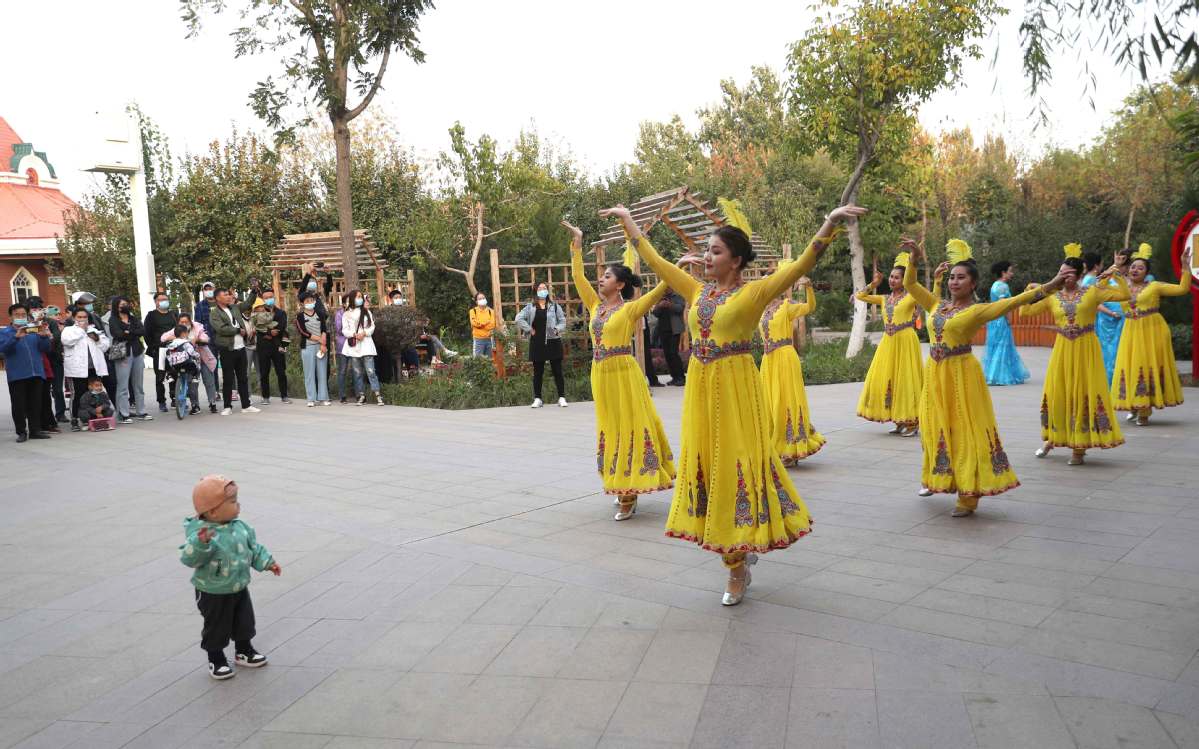Xinjiang accusations are 'cost effective' way to disrupt development


Using so-called human rights issues related to the Xinjiang Uygur autonomous region to curb the development of China is a "cost-effective" move for the United States, which sees China as a competitor and grave threat, a spokesman for the region said.
Xinjiang's geological position has made it a vital strategic security barrier for China. By making it unstable, the US can easily disrupt the development of China, Xu Guixiang, a spokesman for the regional government, said on Thursday.
Also, Xinjiang-related issues are closely tied to the region's history, culture, ethnic groups and religions. Information about the region can easily attract the attention of international communities, Xu said.
"As the US and other Western anti-China forces have strong influence over public opinion, they can easily make up fake news and let them go viral. It's very cost-effective," he added.
Western anti-China forces have been accusing China of carrying out human rights violations targeting people from certain ethnic groups in Xinjiang, including forced labor and even genocide. Although China has repeatedly stated that such accusations are groundless and based on lies, they have been constantly quoted by Western politicians to attack the country.
On Oct 15, US President Joe Biden once again mentioned what he described as "forced labor" in Xinjiang as he delivered a speech at the dedication ceremony for the Dodd Center for Human Rights at the University of Connecticut.
By playing the "Xinjiang card", the US also aims to divert public attention from its domestic problems, such as racial discrimination and unbalanced development, Xu said.
"What's more, the US demands its allies pick sides in the name of protecting the human rights of Xinjiang people and isolate China in international communities," he said.
During the news conference, Xinjiang residents from the Uygur ethnic group refuted the "forced labor" claim with their personal experiences.
Aygul Sidiq, an employee of Xinjiang Kuqa Pomegranate Seed Clothing Co, said US sanctions on Xinjiang's cotton industry based on the excuse of "forced labor" has violated the locals' rights to work and pursue a better life.
"Although the company's business was affected when sanctions were introduced, it has been gradually getting back to normal as new orders have kept coming in. The workers are all glad to see that the company is recovering well, because no one wants to lose their job," Aygul said.
Turahan Idris, a cotton farmer in Awat county, Aksu prefecture, said cotton growing and picking has been highly mechanized, so the claim of "forced labor" is just nonsense among local cotton farmers.
"Those who tell the lies that we are forced to grow and pick cotton just want to see our cotton rot in the fields and let us suffer from lower incomes," Turahan said.
- China's self-developed technology advances its high-speed railways
- Erhai Lake locals prosper from improved environment
- Doctor injects child with improperly stored drug at Chongqing hospital
- Xi's special envoy attends forum dedicated to Intl Year of Peace and Trust in Turkmenistan
- Memorial ceremony remembers victims of Nanjing Massacre
- Louvre's largest showcase in China goes on display at Museum of Art Pudong in Shanghai




































